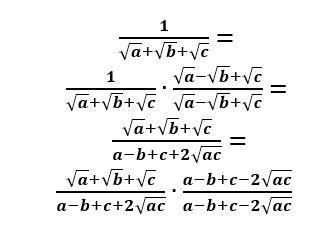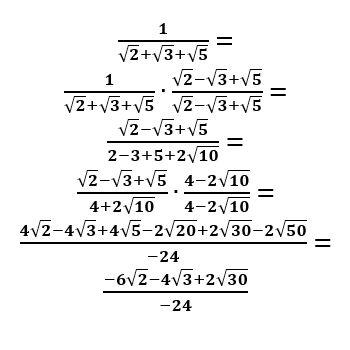Ask Professor Puzzler
Do you have a question you would like to ask Professor Puzzler? Click here to ask your question!
Question from Federico: "How do you rationalize the denominator of a fraction if there are three radicals added together, like SQR(2) + SQR(3) + SQR(5)?"
That's an interesting question, and to be completely honest, it's not one I remember coming across before. So I had to play around with it to see what I could find out. I lucked out, though, and the first thing I tried seemed to work out pretty well.
I started out by using variables instead of numbers, to see if I could find something that would always work. I'll show you the work I did below.

So what did I do? I replaced one of the plus signs with a minus, and multiplied numerator and denomator by that, similar to how we would multiply by the conjugate if there were just two terms. This caused all the radicals to disappear except the square root of ac, and that brings us to our normal simplification process.
So here's how it looks with your particular example:

You can check on a calculator to see that the original value and my final "rationalized" value are the same thing.
Really, though, it doesn't look any simpler, and it was probably more effort than it was worth - but at least I know how to do it now - thanks for asking!
NOTE: I was so focused on rationalizing the denominator that I didn't even think about simplifying further. Of course, you know how to do that, and can finish the process for me!

